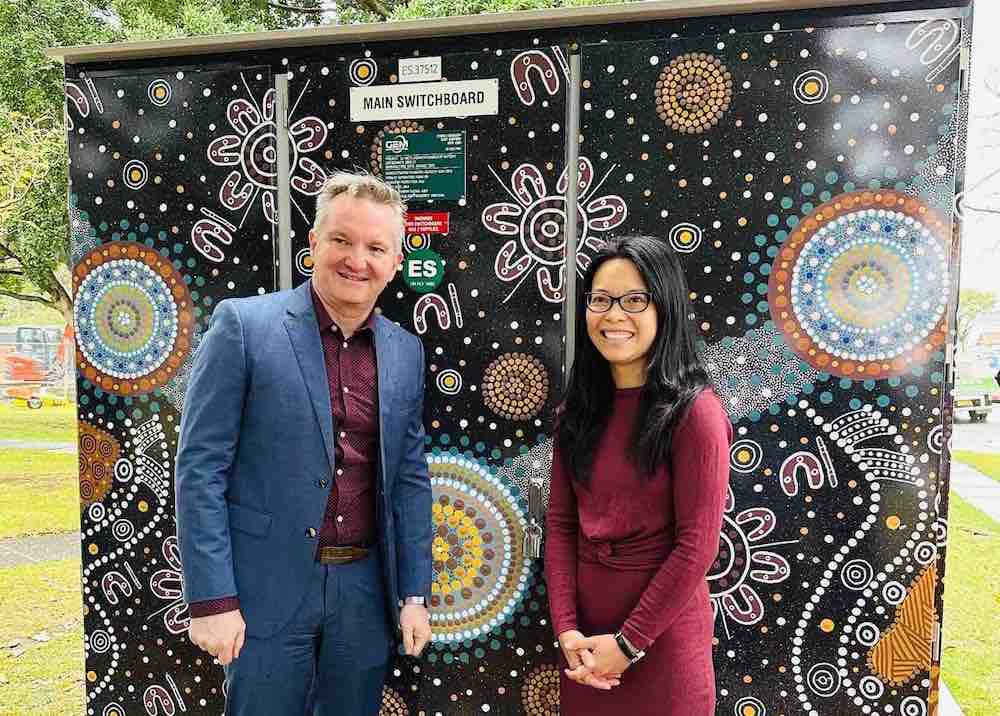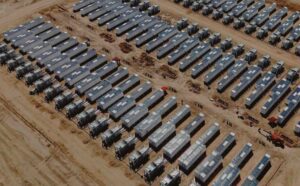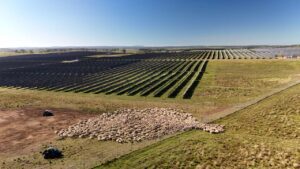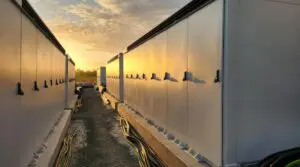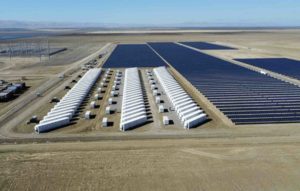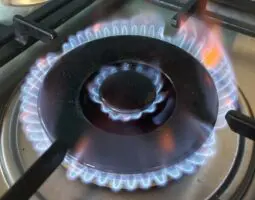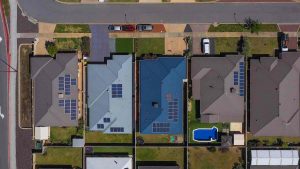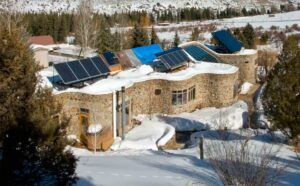The first of 400 rooftop solar-soaking, distribution network-connected battery energy storage systems to be installed under the Albanese government’s $200 million Community Batteries scheme has been switched on in Sydney.
Ausgrid said on Friday that the 412kWh community battery at Cabarita in the city’s north had been delivered ahead of schedule, with another five more to come for the network company’s grid.
The switching-on ceremony was attended by federal energy minister Chris Bowen, who pressed the green button on the community BESS with the help of some slightly confused-looking local kids.
Launching the first of Labor’s 400 community batteries is tough work, so I enlisted some help from MJ and Grace to power up the Cabarita community battery with @SallySitou today. pic.twitter.com/V1D0PQYd8X
— Chris Bowen (@Bowenchris) September 8, 2023
Bowen says the Cabarita battery, which comes online 17 months after Labor’s election promise to deliver it, has the capacity to store power from 50 local solar households and share that electricity with around 150 households at times of peak demand.
Ausgrid chief Marc England said on Friday that NSW consumers could save tens of billions of dollars on energy through the installation of community batteries rather than home batteries.
“We estimate NSW consumers could save up to $20 billion if community batteries replaced half the expected home batteries, with the added benefits of continuing to put downward pressure on peak energy prices while maintaining grid stability,” he said.
A key election commitment in 2022, federal Labor’s Community Batteries for Household Solar program aims to underwrite the deployment of 400 network connected batteries to maximise the local use of cheap solar, reduce pressure on solar-heavy grids and pave the way for more rooftop PV.
The scheme is divided into a few parts, with Bowen’s federal government department in charge of awarding funds for 58 of the discounted energy storage systems – including the Cabarita BESS – and ARENA tasked with allocating the remaining 342 grants, via two separate funding rounds of its own.
ARENA’s first round of funding, launched in April, offers a total of $120 million to deliver more than 300 grid-connected battery energy storage projects of up to 5MW each, with $60 million dedicated to projects proposed by network companies (DNSPs) and the other $60 million set aside for non-network applicants.
The division of the funding follows the controversial move by the Australian Energy Regulator in February to give monopoly electricity network companies access to the Community Batteries scheme via a waiver to ring fencing rules.
Critics of the class waiver have argued that networks, with their monopoly positions, would have a major advantage over non-network companies and could come to dominate the design and and ownership of community batteries funded through the scheme.
For Ausgrid, the Cabarita battery is not the network company’s first. It notched up that milestone in February 2021, with a 150kW/267kWh community battery in the northern Sydney suburb of Beacon Hill.
That battery, part of a two-year trial, sought to enlist the participation of rooftop solar customers in the Northern Beaches area, with other such trials planned for the Canterbury Bankstown and Lake Macquarie areas.
“We believe community batteries are the most cost effective way to bring renewable energy into the grid,” former Ausgrid CEO Richard Gross had said all the way back in 2018.
“I see a world where I am sitting at home with an app, seeing opportunities to trade, to arbitrage price movements, and all this can be done while I am sitting watching Game of Thrones,” Gross told RenewEconomy at the time.”
In comments on Friday, current Ausgrid CEO England argues that DNSP’s are in an ideal position to roll out shared battery storage.
“Community batteries take advantage of our existing network infrastructure, speeding up installation time and reducing the need for expensive network augmentation,” he said.
“By 2030, with the right regulatory arrangements, we could deliver more than 1-2GW of storage, leading to increased electricity system security and reliability for our customers.”

